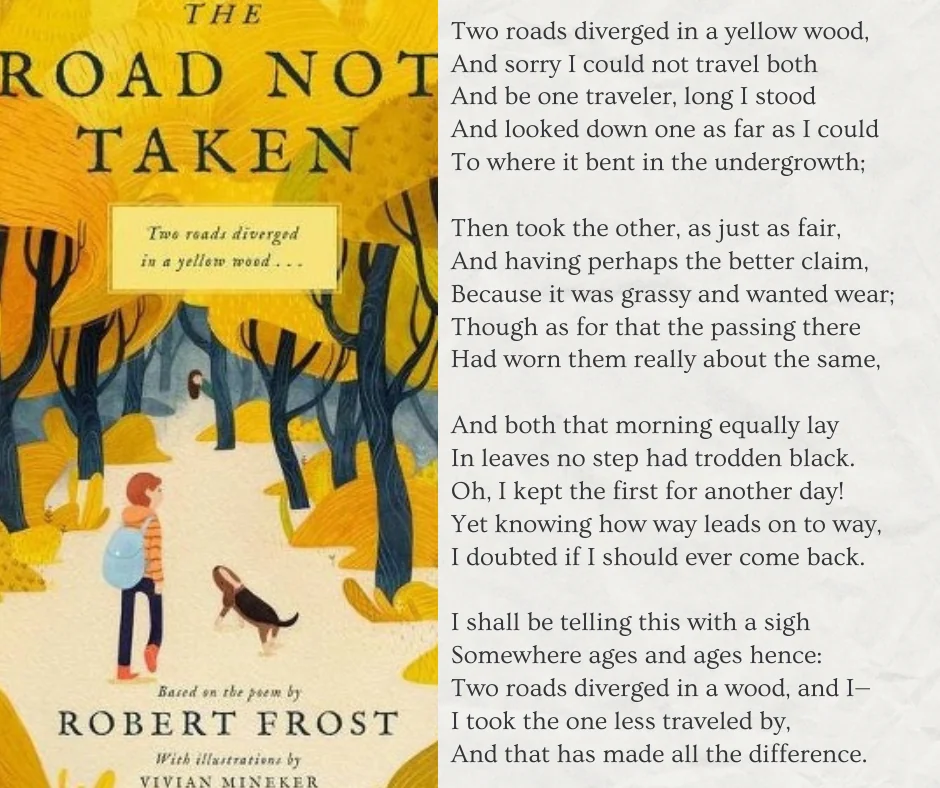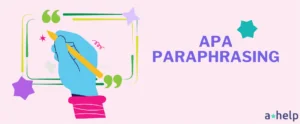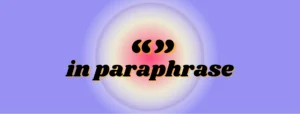When it comes to studying literature, especially poetry, the ability to paraphrase a poem is often the only thing that can help you understand and, as a result, appreciate the text more. However, paraphrasing, or rephrasing a poem in your own words, is not just a mechanical exercise, as one might think. In reality, it requires a balance of keeping the original meaning, being able to decipher even the oldest, least recognizable words, and still do it in your own way.

✅ AI Essay Writer ✅ AI Detector ✅ Plagchecker ✅ Paraphraser
✅ Summarizer ✅ Citation Generator
Why Would You Need to Paraphrase a Poem?

Picture this: you’re sitting in your literature class, and the teacher announces a group discussion on Robert Frost’s “The Road Not Taken.” You’ve read the poem, but the words seem to dance around, not quite sticking in your mind. This is where paraphrasing comes to the rescue! Even though paraphrasing will not help you memorize the lines, it will give you that deeper understanding of the poem’s meaning, making it your own. This may sound a bit dramatic, but you do, in fact, internalize the ideas better, when you repeat them to yourself in your own way.
Now, imagine you’re preparing for an exam. You’ve got a list of poems to analyze, and time is ticking. Instead of cramming lines, you paraphrase. It’s like creating a cheat sheet, but for understanding, not for cheating (yes, we know it sounds cheesy). You’re distilling the essence of each poem, making it easier to recall and write about under the pressure of the ticking clock.
But it’s not all about exams and grades. Sometimes, you just want to feel the poetry, to connect with it on a personal level. Paraphrasing can be your bridge to that connection. It’s like having a heart-to-heart with the poet, where you say, “I see what you’re saying, and here’s my take on it.” It’s a conversation across time and space, facilitated by your own words.
Key Points to Keep in Mind When Paraphrasing
You may think that paraphrasing a poem should be somewhat similar to rephrasing a novel. You are right, for the major part. Yet, this process has its intricacies, mostly dictated by the specifics of the structure and tone of poetry. Thus, when you decide to start paraphrasing, several key considerations should be at the forefront of your mind. Here’s how to paraphrase a poem:
- Quoting vs. Paraphrasing
While it’s tempting to rely on direct quotes, paraphrasing encourages a deeper engagement with the text. It’s about finding the balance between preserving the original meaning and infusing it with your unique voice. Still, if the task requires you to incorporate direct quotes, be sure to do that, as it can help save the poem’s initial message. - Understanding the Poem
Familiarity with the poem’s overall meaning is crucial. If you can’t grasp the gist of the poem, your paraphrase might miss the mark. So, before trying to paraphrase, read the text a few times. Maybe look online for some literary reviews of the poem you are reading. This will ensure you aren’t messing with the original author’s intentions.
- Oral Rephrasing
Try reciting the poem in your own words aloud first. This can help you internalize the message and find a natural way to express it. - Imagining the Meaning
Visualize the poem’s imagery and themes. Can you rewrite the ideas you evoked in your mind? This exercise can enhance your understanding and creativity in paraphrasing.
How Do You Paraphrase a Poem?
Academic paraphrase of a poem is a step-by-step process that requires patience and attention to detail. Below we include a guide to help you structure your work effectively.
Read and Understand
First things first, you’ve got to get cozy with the poem. Read it once, twice, thrice, or as many times as it takes for the words to start playing in your head like a catchy tune. Pay attention to the message, the mood, and the little nuances that make the poem tick.
Annotate
Now, grab your highlighter or pencil and start marking up the poem like it’s a treasure map. Look for keywords, phrases, or images that stand out. These are the gems you’ll use to reconstruct the poem in your own words. Think of it as picking out the ingredients for a recipe: you need to know what you’re working with.
Break It Down
Here’s where you put on your detective hat and start dissecting the poem into manageable chunks. Whether it’s line by line or stanza by stanza, breaking it down makes the task less daunting.
Use Your Own Words
Now, the fun part! Take each piece of the poem and rewrite it in your own words. Keep the essence, but add your flavor. It’s like singing a cover of a song; you’re keeping the tune but adding your own style. Don’t worry if it’s not perfect on the first try – it’s all part of the process.
Maintain the Tone
As you paraphrase, don’t forget to keep the mood of the poem intact. If it’s a somber poem, your paraphrase shouldn’t sound like a party invitation. Here, you want to keep the vibe consistent.
Review and Revise
Finally, it’s time to polish your paraphrase. Compare it with the original poem and make sure you’ve captured the essence without losing the meaning. Just make sure everything looks right.
How Do You Paraphrase a Stanza?
A stanza is a grouped set of lines within a poem, often separated by a space from other stanzas, much like a paragraph in prose. To paraphrase a stanza effectively:
- Identify the Core Idea: Determine the main theme or message of the stanza.
For example, in the first stanza of Robert Frost’s “The Road Not Taken” (which we paraphrase below), the core idea is about facing a choice between two paths in a wood. - Reword Line by Line: Rewrite each line in your own words, ensuring you maintain the original meaning.
In this case, “Two roads diverged in a yellow wood” could be rephrased as “In an autumn forest, two paths split apart.” - Check for Cohesion: Ensure that your paraphrased lines flow smoothly and cohesively, mirroring the original stanza’s structure. If the original stanza has a certain rhythm or rhyme scheme, try to keep that vibe in your paraphrase.
Example:
| 📕Original Poem | 📗Paraphrased Poem |
| From “The Road Not Taken” by Robert Frost “Two roads diverged in a yellow wood, And sorry I could not travel both And be one traveler, long I stood And looked down one as far as I could To where it bent in the undergrowth;” | “In a forest painted with autumn’s hues, I faced a choice between two paths. Regretfully, I couldn’t explore both, So I lingered, peering down one Until it curved into the thickets.” |
FAQ
Follow us on Reddit for more insights and updates.





Comments (0)
Welcome to A*Help comments!
We’re all about debate and discussion at A*Help.
We value the diverse opinions of users, so you may find points of view that you don’t agree with. And that’s cool. However, there are certain things we’re not OK with: attempts to manipulate our data in any way, for example, or the posting of discriminative, offensive, hateful, or disparaging material.